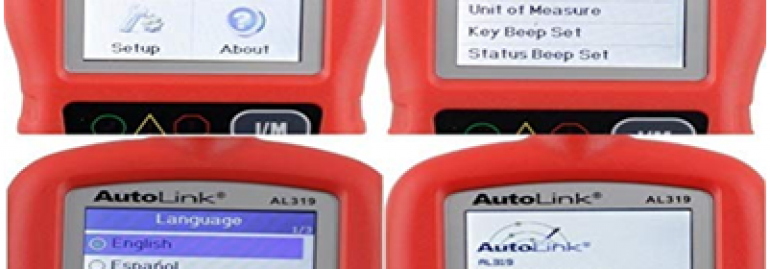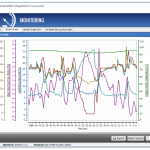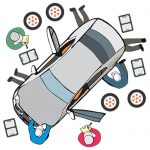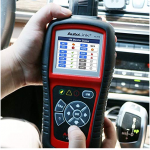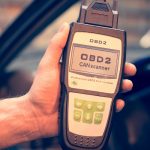Modern garages today are using high tech to figure out what is wrong with cars of all types.
In the past, if you were to take your car to a mechanic, they would have to apply a certain trial and error to the diagnostic process.
Today, that’s not the case. If your car has been made after 1996, when the EPA mandate for changes was put into place, you’ll find that you’re going to have to work with a variety of different solutions.
You may need to use what is known as an, OBD2 code reader. This is a reader that is attached to your car, and relays information in the form of codes. Mechanics are using these all the time, and the garage that you take your vehicle to will be diagnosed with one of these solutions.
Here’s the kicker, you could purchase an OBD2 code reader yourself. That’s right, you can buy the same element that your mechanic is going to use on your car, and start to fix your own vehicle today.
Even though you can buy one of these solutions, you’ll find that you will not have the experience, nor the tools to work with some of the fixes your auto may need. In fact, you may find out that your mechanic will not tell you a few things about the readers that they are using.
That’s why you should be wary about buying a professional grade reader, until you read a few things that they will not share with you.
Some Readers Only Give Proprietary Codes
The first major thing that you are not going to get told outright is what codes mean. When you attach one of these readers to your car, you are going to get data in the form of codes.
The codes are interesting in that they are either generic or they are specific to the car that you have. If you have a proprietary code, however, you will not know what it means, as it’s only for professional use.
Many dealers have professional grade readers that are specifically delivered to them from the car manufacturer. These can run consumers tens of thousands of dollars, and they come with special codes specifically for those that are going to be servicing their vehicles.
As a consumer, you’re not going to get the code meanings, unless you pay for them.
The price tag on those can be quite expensive, especially in the case of higher end vehicles with specific ECU elements in place.
A mechanic will not share with you their information, nor will they tell you the software update they are using, as it’s a trade secret in many instances.
Some Cars Don’t Work With Generic OBD2 Readers
Hinging on what was stated above, some OBD2 code readers don’t work with all cars. The reader you purchase may say that it works with all cars, or a majority of them, but that’s not always the case. In fact, there are some that do not work with many cars at all.
Again, not all readers are going to be universal, even if they say that they are. Some vehicles require specific scanners to use, and will only work in the hands of a certified, licensed individual.
While you can buy similar tools, you may have to succumb to taking your vehicle to a professional, depending on the make and model of your vehicle.
Software May Need Updating From Time To Time
If you are going to invest heavily in a reader, you will need to also update the software from time to time.
Some readers have automated software updates. Others charge you for the software update, and then others are closed off. You have to read the specifications of the solution that you want to buy so that you know what you’re getting into.
Without spending time figuring out the specifications, you may be surprised by the software elements after the fact. Updating the software means that you’ll get new codes, and up to date information so that you can fix your vehicle. Without these updates, you may have antiquated, useless software elements in place.
Mechanics get updates all the time, and they have to be on top of the changes, otherwise they could lose business.
You cannot make the assumption that you are able to gain traction without up to date software, as these rely heavily on the upgrades that are put out by the manufacturer, etc.
Some Fixes Require A Great Deal of Labor
One of the trade secrets that goes into automotive repair is that some fixes are easy, but some are labor intensive.
Which is which is not something that you’ll know until you have experience fixing your car. In fact, you could find that a lot of fixes that you apply after scanning your ECU will be simple. Some will not. Those that are not, will require a professional, but which ones will require extensive work?
That’s a trade secret that you may not know about until you try and tackle something extensively.
While you can work on small fixes like changing spark plugs, or fixing steering elements, you may not be able to replace transmissions, or even engine components that are locked in place by the manufacturer.
Some Codes Are Mistaken
Even the best software out there is not as good as an experienced mechanic. A mechanic that has been working with car repair for some time, may see the codes of a scanner and ignore them. Why? Because they could be wrong. Some options are outright wrong, or showcase an error.
That’s why mechanics don’t always rely on just the codes that they see with their OBD2 code readers.
As a consumer, you may end up trusting the readers and information that you pull, but they will not be accurate at times. It’s for that reason why you may need to still see a mechanic from time to time.
They are not going to tell you which are false alarms, and which are legit, as it’s part of their trade secrets.


